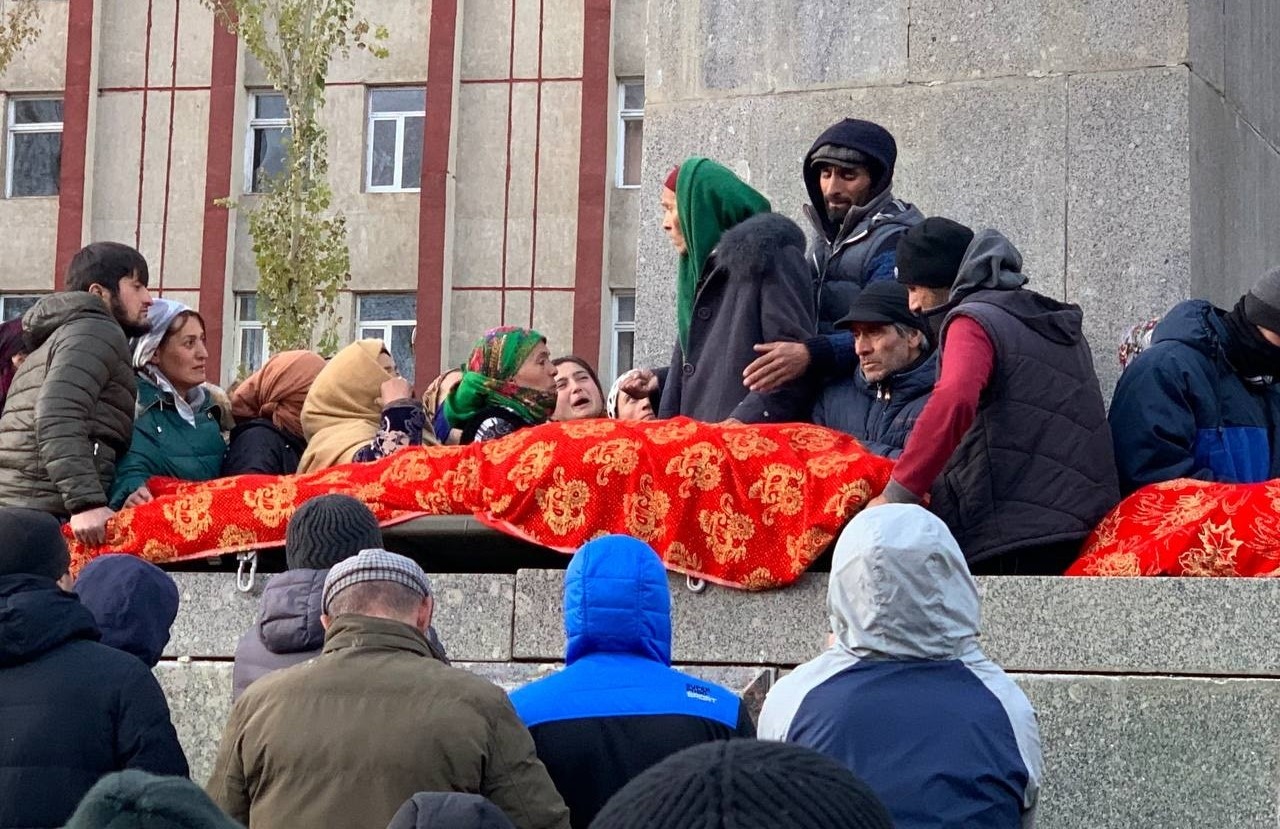The International Commission of Jurists (ICJ) calls on Tajikistan’s authorities to ensure that those arrested and charged in relation to the recent protests in the Gorno-Badakhshan Autonomous Region (GBAO) be immediately guaranteed the right of access to a lawyer. Without access to a lawyer, many people are arbitrarily detained and are likely to face unfair trial.
During the May and June 2022 protests in the GBAO, the security forces killed dozens of people, and more than a hundred were reportedly arrested in their aftermath. According to reports, lawyers are reluctant to defend people arrested and charged in connection with the protests for fear of retaliation, including as a result of spurious disciplinary actions against them. The ICJ is also concerned at reports that lawyers are being warned not to be too zealous in their legal representation of their clients.
Moreover, the organization is concerned at the insufficient number of lawyers in the GBAO. Reportedly, there are only four lawyers officially registered as members of the Bar Association in GBAO per 250’000 residents. Such a rate is clearly inadequate; without measures to increase the number of lawyers available to represent those arrested following the protests, many individuals have already been left without legal representation. At present, defendants in dozens of cases are without any legal representation despite the fact that many among them face long-term prison sentences if they are convicted.
In Dushanbe, two members of the Commission-44 (see background section below), Shaftola Bekdavlatov and Khujamri Pirmamedov, who were convicted on charges of “organizing a criminal group” and “receiving funding from abroad”, and who were each sentenced to 18 years’ imprisonment were defended by Faromuz Irgashov, another Commission-44 member, who, however, was at the time himself detained on the same charges.
Article 14 of the International Covenant on Civil and Political Rights (ICCPR), to which Tajikistan is a party, among other international human rights law instruments, guarantees the right of access to a lawyer to anyone facing criminal charges; to adequate time and facilities to prepare their defence; and to communicate with their legal representative of choice, both in the run up to and at trial, as critical elements of the right to a fair trial. Prompt access to a lawyer is also a key component of the right to liberty (including under Article 9 of the ICCPR) of anyone in detention.
Access to lawyers is also essential to protection against torture or other ill-treatment in detention (including under Article 7 of the ICCPR), and to ensure the right to access to justice and to an effective remedy for human rights violations, guaranteed under international human rights law, including the ICCPR (article 2(3)).
According to the UN Basic Principles on the Role of Lawyers, governments must ensure that lawyers “are able to perform all of their professional functions without intimidation, hindrance, harassment or improper interference; […] and (c) shall not suffer, or be threatened with, prosecution or administrative, economic or other sanctions for any action taken in accordance with recognized professional duties, standards and ethics” (Principle 16).
Furthermore, lawyers must not “be identified with their clients or their clients’ causes as a result of discharging their functions” (Principle 18).
The ICJ calls on the government of Tajikistan to urgently take all necessary measures to ensure that anyone detained in relation to the recent protests in GBAO be granted access to independent and effective legal representation at every stage of proceedings, and that lawyers be able to exercise their functions without fear of retaliation for their work in defence of clients. They should not be identified with their clients or their causes.
The ICJ also calls for a fully independent, impartial, thorough and prompt investigation into the deaths and injuries that occurred as a result of the actions of the security forces, leading where appropriate to prosecutions of the perpetrators.
Background
On 25 November 2021, Gulbiddin Ziyobekov, a young man from GBAO, was killed as the police tried to detain him. In the aftermath of his death local residents protested, demanding a proper investigation into the incident. The protests escalated into clashes with the police. Three people died in Khorog, GBAO’s administrative centre, as a result of the authorities’ ensuing suppression of the protests. The clashes between protestors and the police continued for several days with protesters and law enforcement officers sustaining injuries. In response to the protests, the authorities blocked internet access in the region for four months.
In November 2021, a group of GBAO authorities and protesters established Commission-44, a group of activists consisting of 44 persons. The group called for a thorough investigation into the events in Khorog in November 2021.
In December 2021, Chorshanbe Chorshanbiyev, a Tajik Mixed Martial Arts (MMA) fighter, who had recorded a video about the protests named “to the people of Tajikistan and Pamir”, where he expressed his support for the protesters and called for those responsible for the deaths of and injuries to protesters to be held to account, was deported from Russia to Tajikistan. The official grounds for his removal from Russia to Tajikistan was breach of traffic rules.
On 13 May 2022, a court in Dushanbe convicted Chorshanbiyev to 8 and a half years in prison on charges of attempting to violently change Tajikistan’s constitutional order. Chorshanbiyev’s conviction reignited the protests on 14 May 2022, which the authorities violently dispersed. The violence spread to other regions of the GBAO. On 18 May, the Tajikistan authorities announced the start of a “counter-terrorism operation”. In May-June 2022, dozens of people were killed as a result of the authorities’ “counter-terrorist operation”, and more than 100 arrested. At least ten members of the Commission-44 have been arrested in 2022, albeit some have later been released.
Several people have already been convicted on a variety of criminal offences related to the protests, such as “organization of an unauthorised protests”, “high treason”, and sentenced to long terms in prison.





